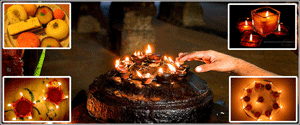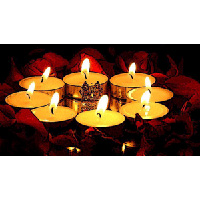The Evolution Of Diwali And Its Relevance To The World
Diwali is among the most celebrated of all Indian observances. Elaborate and lavish, this holiday is enjoyed by all strata of society. This is a festival eagerly awaited by each member of the family, whether young or old, and is equally enjoyed by all.
 Diwali has a varied relevance to each person, but what remains common about the festival is the fact that it brings joy, peace and happiness. This is perhaps the only occasion where everyone comes together without inhibition. It is also among the few Indian festivals where people of all faiths come together in celebration. Diwali has a deep rooted tradition and is very rich in significance. What has perhaps made Diwali as special as it is today is the fact that its genesis has been traced back to as far as the treta yug. The celebration of Diwali began when Lord Rama was welcomed back into his kingdom of Ayodhya after vanquishing Ravana. The lighting of lamps in his honor, cleaning out of homes and grand decoration was apparent all over the city, and the bright illumination of Ayodhya is what gave Deepavali most of its character. Diwali is still considered today the festival lights, and not without perfect reason.
Diwali has a varied relevance to each person, but what remains common about the festival is the fact that it brings joy, peace and happiness. This is perhaps the only occasion where everyone comes together without inhibition. It is also among the few Indian festivals where people of all faiths come together in celebration. Diwali has a deep rooted tradition and is very rich in significance. What has perhaps made Diwali as special as it is today is the fact that its genesis has been traced back to as far as the treta yug. The celebration of Diwali began when Lord Rama was welcomed back into his kingdom of Ayodhya after vanquishing Ravana. The lighting of lamps in his honor, cleaning out of homes and grand decoration was apparent all over the city, and the bright illumination of Ayodhya is what gave Deepavali most of its character. Diwali is still considered today the festival lights, and not without perfect reason.
In subsequent ages, Lord Krishna slayed the evil Narakasur and protected all women in so doing. This is why great joy and emphasis is paid to the triumph of good, and celebrations occur with firecrackers and festivities everywhere.
Over the years, people have found their own reasons to make Diwali unique. Traditional celebrations would entail laborious cleaning of the house weeks in advance, lavish preparations including sweets and savories, and the purchase of new clothes for the family. In the days gone by, people would do most things themselves, and little was left to purchase. Other than the clothes, ladies preferred completing all other arrangements at home. Sweets were prepared at home by the ladies, the cleaning was done with the help of the men, and the arrangements were made with the children.
While we know Diwali as a time to greet everyone and share special moments, the build up to Diwali was special in the early days. Men would gather together weeks in advance to find ways to make Diwali special. Ladies would work together to make sweets and food, making this truly a community occasion. Not only was this an excellent way to build relationships, but also a way in which the joy and spirit of Diwali could be shared. It also ensured that no family was burdened, and that no family was excluded from celebrations either. This was, in some way, the real spirit of Diwali, which was a time for bonding, spreading sweetness and
Diwali was special in the early days. Men would gather together weeks in advance to find ways to make Diwali special. Ladies would work together to make sweets and food, making this truly a community occasion.



























